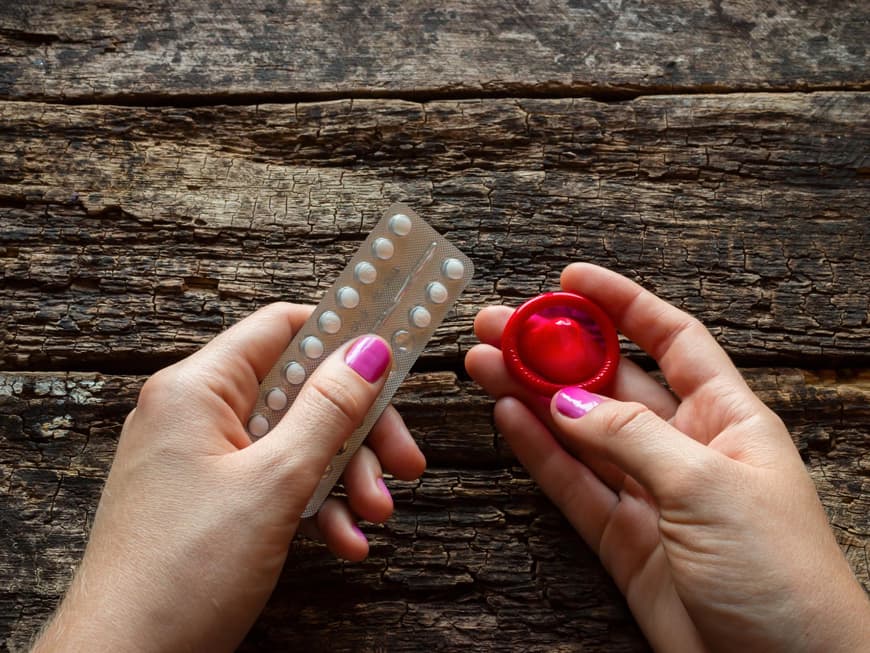
As early as 100 AD, Soranus of Ephesus recommended: "After the man ejaculates, the woman should withdraw, squat down and sneeze - in addition, an attempt should be made to 'release' the semen from the female body by wiping the vagina." - Well, if that isn't easy, isn't it?
Check out 5 contraceptive myths:
1. antibiotics make hormonal contraceptives ineffective
This is a myth that actually has some truth to it. Although it cannot generally be said that drugs of this type disable hormonal contraceptives, it has been proven that some antiepileptics, antibiotics and individual drugs hinder the absorption of hormones via the intestinal mucosa or accelerate the breakdown of hormones in the liver. This can happen shortly after ingestion and even up to seven days afterwards. So if you want to be on the safe side, use another form of contraception during this time.
2. the pill makes women fat
Science is divided on this topic. It is theoretically possible that the increased amount of oestrogen causes increased water retention, which in turn causes subcutaneous fatty tissue to develop. However, a study by a Cologne institute shows that there is no difference between a pill and a placebo in this respect. It therefore varies from woman to woman.
3. sex during your period
Many people are lulled into a false sense of security when they have sex during their period. But caution is advised here too! Women are most fertile in the middle of their cycle, i.e. during ovulation. As this takes place around two weeks before the first day of your period, you might assume that this would be an indication that you cannot get pregnant. However, sperm can survive this long window of time and therefore do not rule out pregnancy.
4. vaginal douche with cola
We know the most important facts about cola: the sugary drink is refreshing, is not the healthiest for our teeth and reacts explosively when combined with Mentos sweets. But can cola also be used as a contraceptive? Completely absurd, you might think. But a US study by Harvard Medical School actually found that cola can immobilize sperm . The researchers actually came up with the idea of "rinsing" the vagina with cola after sex to prevent pregnancy. However, cola cannot kill the little swimmers, which means that pregnancy can still occur. Furthermore, the tests for the study were carried out with a glass of cola, not with female genitalia. Dear men, please continue to tip the cola into the glass, not into your wife!
5. contraception unnecessary during the menopause
Unfortunately, this statement cannot be made in general terms either. During the menopause, there are fluctuations in the female cycle. Pregnancy is still possible for women over 45, although it is less likely. It is generally recommended to use contraception until the age of 51. If you are then in the menopause and have not had a period for a year, you can assume that you are no longer fertile.
So we can see that we live in a time when we have access to a wide range of options to avoid an unwanted pregnancy. Nevertheless, there are also some moments when people seem to get very experimental and misuse everyday things, such as cola. However, if you pay attention to the points mentioned above and fall back on familiar things, nothing will stand in the way of your carefree love life.
ORION blogger David






